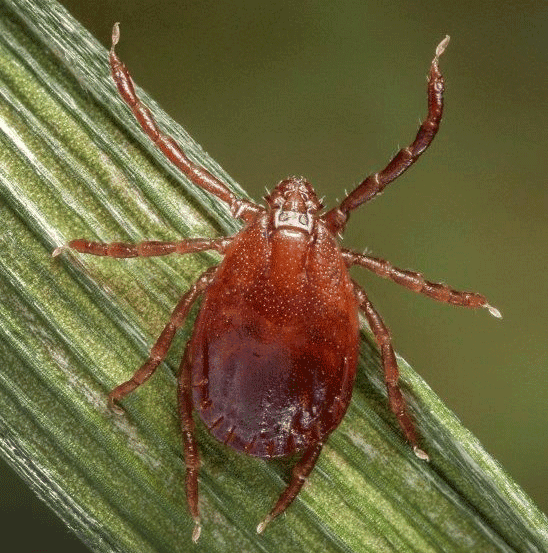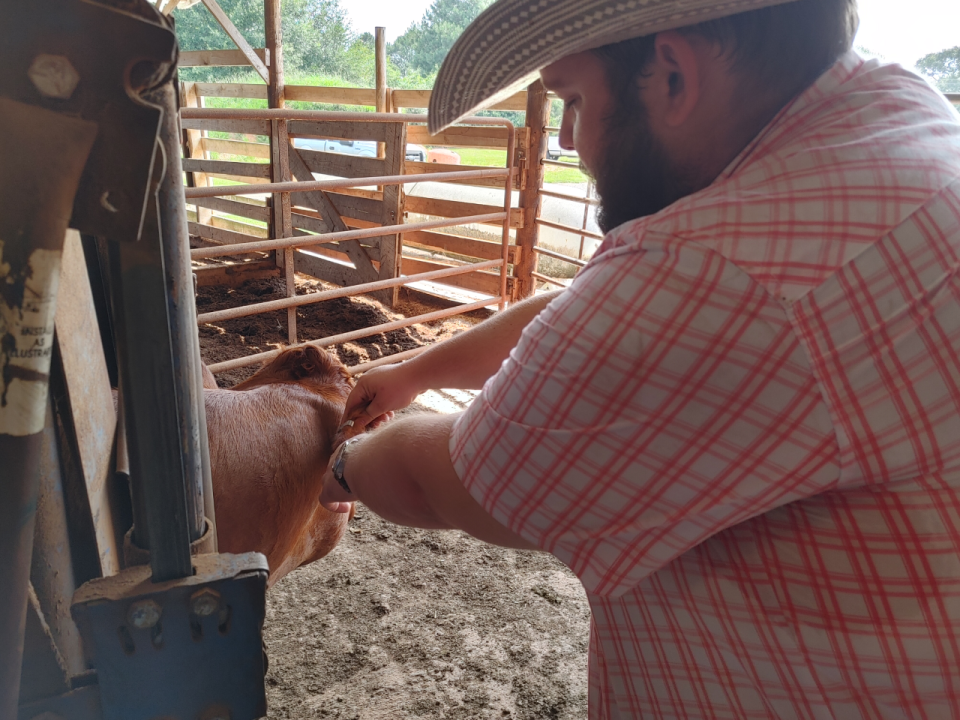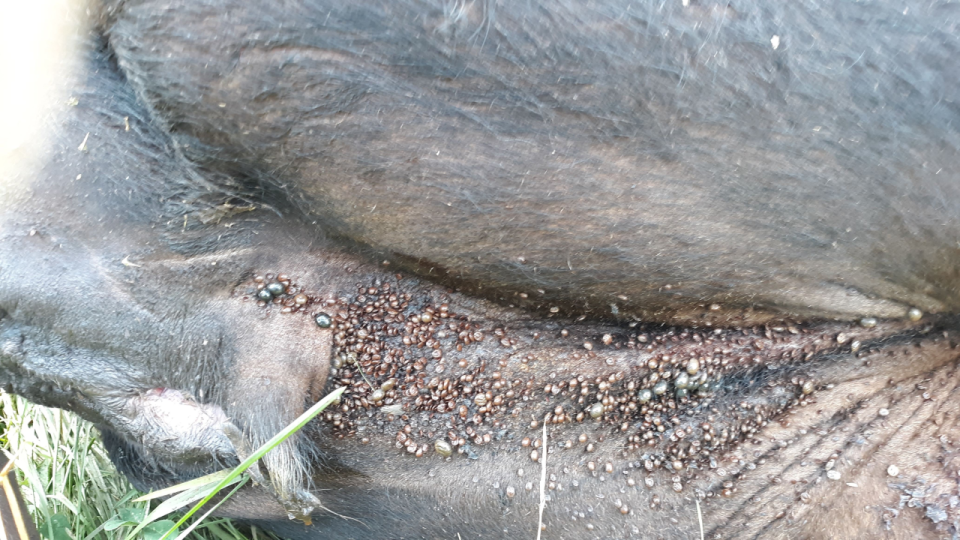A new kind of tick has made its way to north Georgia. Here's what you need to know

Just in time for Halloween, the Georgia Department of Agriculture has confirmed the presence of a new bloodsucker in north Georgia.
The Asian Longhorned tick, an invasive pest that can transfer diseases to people, pets and livestock, has had its presence confirmed by GDA in Pickens, White, Hall and Habersham counties.
Planting seeds for the future: Athens gardeners turn to native plants to support pollinators
Climate change: Stronger storms, longer seasons: How hurricanes will change in Georgia's rising waters
According to GDA, the tick is native to eastern Asia, but was found in the U.S. in 2017. The Center for Disease Control and Prevention said the tick has been found in 17 states, with Georgia as its latest destination.
"It's not like they're walking on their stubby little feet," said Georgia Extension Veterinary Entomologist Nancy Hinkle from the University of Georgia. In terms of how the ticks made their way to Georgia, she said ticks are parasites that travel on hosts, usually larger mammals, that like to migrate or roam.

For example, Hinkle said, first-year male bears all disperse when they're reaching maturity so they don't compete with established male bears, leading them to travel with the blood-sucking passengers in tow. In the Southeast, white-tailed deer are aplenty, and while they don't have large home ranges, they move around enough to help ticks travel farther. Migratory birds can also easily carry ticks over multiple states.
Now that the ticks are cropping up in multiple places around north Georgia region, it's likely the ticks are starting to establish in the area, said Hinkle.
An entomologist at the University of Georgia who works as the state Extension Veterinary Entomologist, Hinkle said the ticks can be hazardous to livestock.
Dangers of disease
Scientists are still learning more about how the Asian Longhorned ticks carry disease in the U.S., but Hinkle said in their native ranges the ticks carry some "nasty" diseases, including half a dozen animal diseases and at least one very significant human disease. None of these have been found in North America yet, but Hinkle said they may be present.
A second piece of the puzzle is that scientists don't know yet how good the Asian Longhorned tick will be at spreading tick-borne diseases that are already in the U.S., like Lyme disease and Rocky Mountain spotted fever.

Aside from their ability to get to Georgia, Asian Longhorned ticks have another trick up their sleeves to increase their spread: They are "parthenogenetic," meaning they can reproduce without being fertilized by a male.
"It's unusual, but not rare in the animal kingdom," Hinkle said.
Only a few types of ticks reproduce this way, and the Asian Longhorned tick is the only one that exhibits the parthenogenetic, female-only style. The matriarchs will only have one batch of eggs in their lifetimes, but when they do it can be up to ... 3,000 babies, none of which will be male.
UGA did receive a grant a few years ago from the Georgia Cattlemen's Association to help monitor the arrival of the Asian Longhorned tick because scientists think the ticks will be worse for cattle, its preferred host, for which it carries several significant cattle diseases. The grant ran out in 2020, Hinkle said, and in 2021 the tick was found in Georgia.

Taking precautions
People who believe they've been bit by one of these ticks should take the same precautions as any other tick bite.
First, Hinkle said, remove the tick. She said not to try any of the old wives tales, like smearing the tick with oil or hitting it with a lit cigarette. Not only will it not work to remove the tick, but it will make the tick agitated, causing it to regurgitate into your bloodstream.
Second, people should keep the tick in a plastic bag. Write the date on the bag, then put it in the refrigerator – not the freezer – so that if you experience symptoms of illness, the tick can be tested by a doctor. Unfortunately, Hinkle said the symptoms for tick-borne illnesses are often similar to those of COVID-19 and the flu: fever, muscle aches, headaches and general lethargy.
More likely than not, this time of year it's the flu, but it's always good to present the information to your physician just in case, Hinkle said. Like other ticks in Georgia, the Asian Longhorned tick dies back during the winter and won't be out biting. The only active tick during the winter in Georgia is the deer tick.
To learn more or report a large number of ticks on an individual animal to the Georgia Department of Agriculture, visit bit.ly/3zjvTLu.
Marisa Mecke is an environmental journalist. She can be reached at mmecke@gannett.com or by phone at (912) 328-4411.
This article originally appeared on Athens Banner-Herald: Asian Longhorned tick found in fourth north Georgia county

